Future housing in Bloomington to get boost with 28 emergency vouchers, $2.25M in federal funds, “multi-million dollar” request to city council by mayor
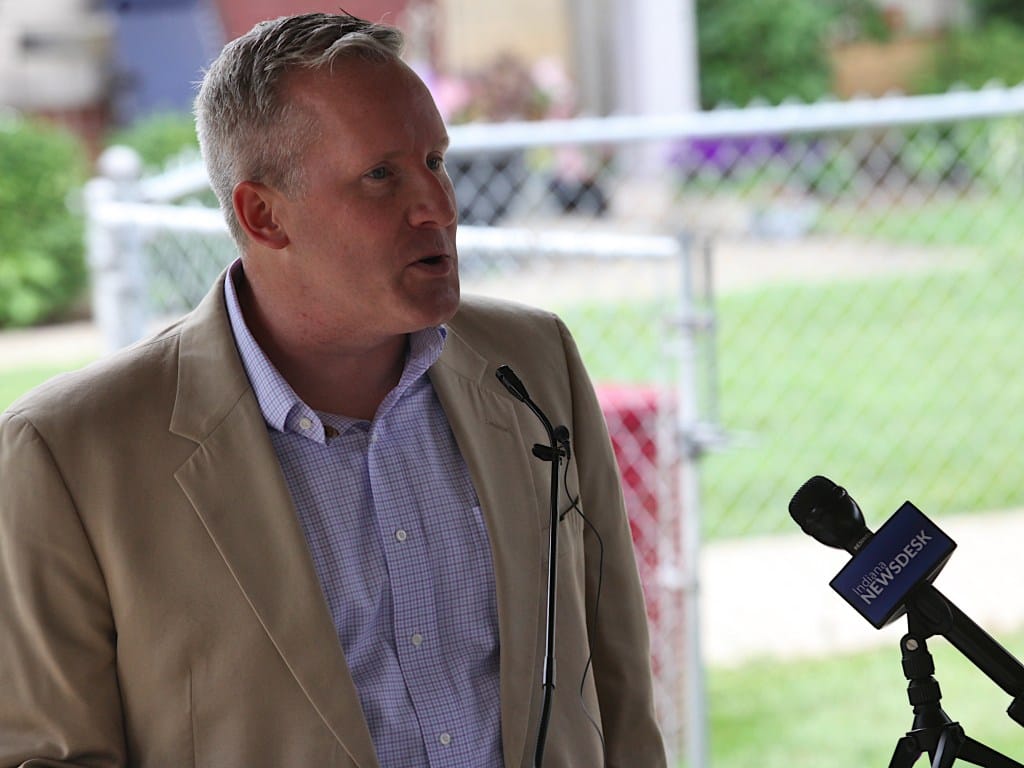
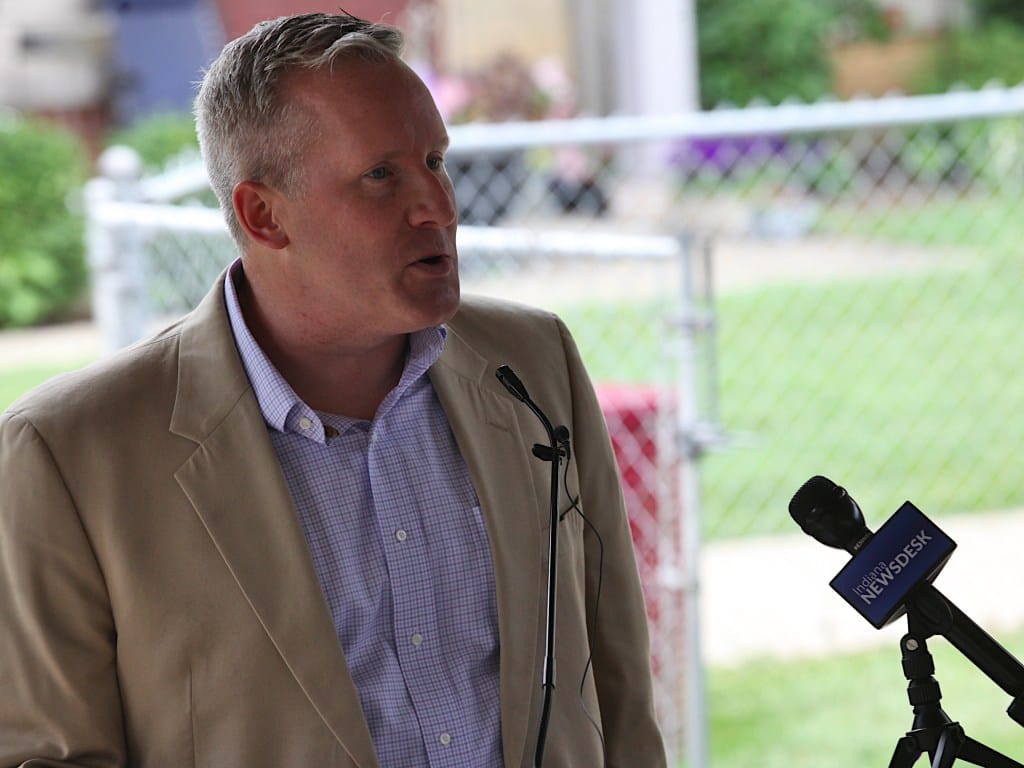
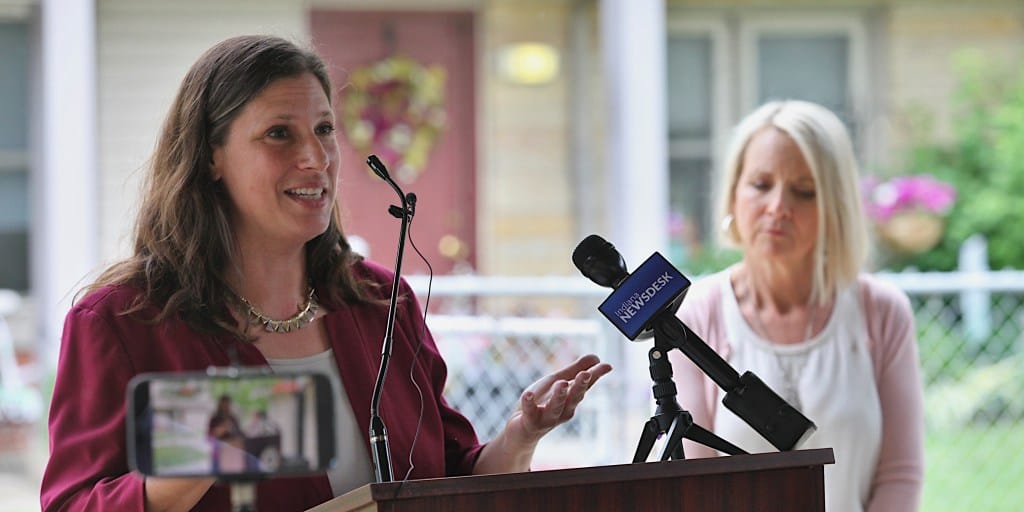
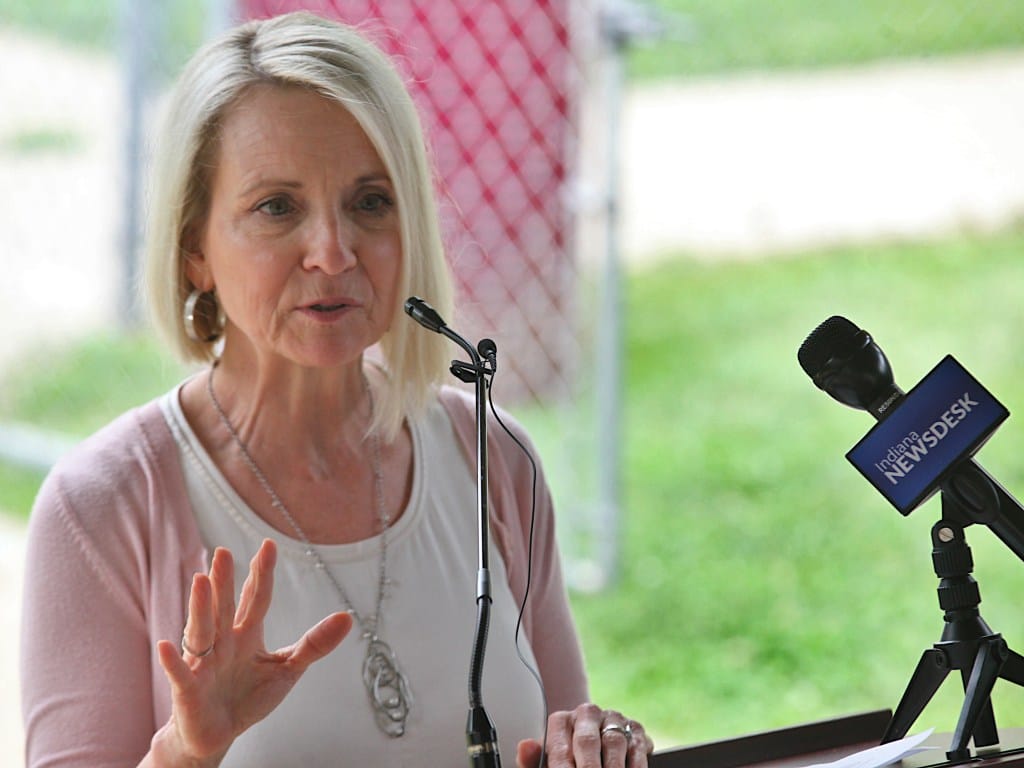
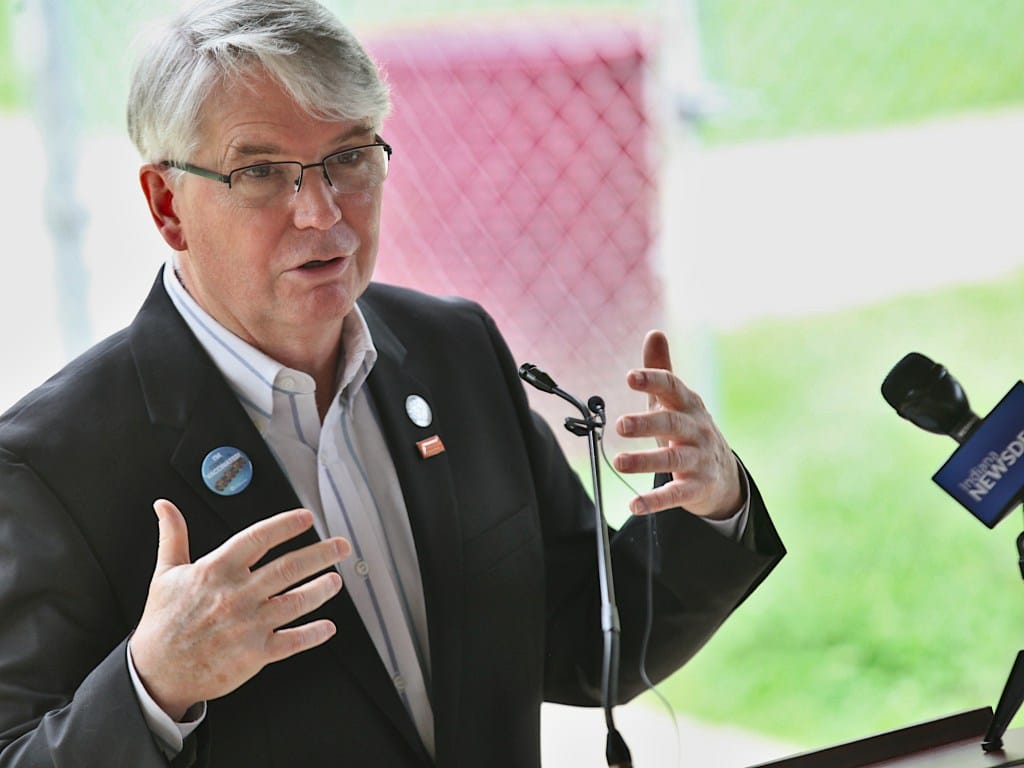
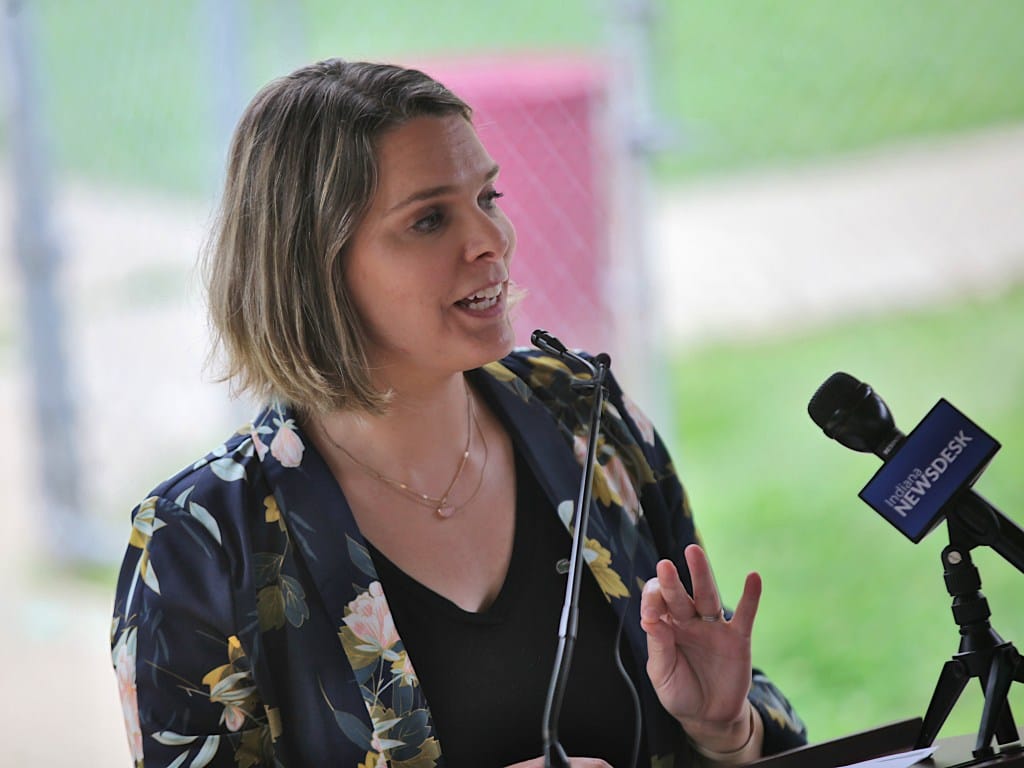
At a Tuesday press conference held on the back porch of the Bloomington Housing Authority’s community center on Summit Street, some new information was announced about support from the federal government for local housing programs.
Bloomington’s mayor, John Hamilton, also announced that in July he’d be making a request of the city council to support housing initiatives, through an extra appropriation for the 2021 budget year.
The mayor’s request will be for a “multi-million dollar” investment of Bloomington’s allocation of American Rescue Plan Act (ARPA) funds. Bloomington’s total amount of basic ARPA funds is around $22 million.
In other news announced on Tuesday, Bloomington Housing Authority executive director Amber Skoby said BHA is one of 700 housing authorities across the country that is receiving 28 new emergency vouchers. The vouchers are for individuals and families who are experiencing homelessness, at risk of homelessness, fleeing, or attempting to flee domestic violence or who were recently homeless.
The emergency vouchers will be available starting July 1.
The city’s housing and neighborhood development (HAND) director, John Zody, prefaced his remarks by noting that last year Bloomington had received $250,000 in additional CDBG funds, to help respond to the COVID-19 pandemic.
Zody announced that another $650,000 in pandemic-related CDBG funds will be made available for applications starting next week.
An additional fresh set of housing funds was announced by Zody. Bloomington will get $1.6 million more through the American Rescue Plan.
The money can be used specifically for the preservation or production of affordable housing, tenant-based rental assistance, supportive services including homeless prevention services, and housing counseling, Zody said. No final guidance from the feds on the use of the extra $1.6 million has been provided, Zody said.
Also at Tuesday’s press conference, Tina Peterson (Community Foundation of Bloomington and Monroe County) and Efrat Feferman (United Way of Monroe County) gave an update on their work to build a coalition to establish needed collaboration and coordination for the countywide area, to create a sustainable strategy to reduce housing insecurity and prevent homelessness.
Hamilton’s request for an allocation of ARPA funds will come at the council’s July 21 meeting. By then, the precise dollar amount will have to be dialed in.
In the context of Bloomington’s ARPA allocation, “multi-million dollar” means a range from $2 million to $22 million.
Asked after his remarks on Tuesday to narrow down the range, Hamilton said he thinks the request will be at least $1 million for each of three areas he sketched out in his remarks from the podium.
Those areas are: response to and prevention of homelessness; affordable housing rental supports; and affordable home ownership support.
The city council will need to establish a fund to hold the ARPA money. At its committee-of-the-whole meeting on Wednesday, Bloomington’s city council got a quick briefing on the ordinance they’ll consider for enactment on June 16, to establish an ARPA fund.
On hand to answer questions was the city’s corporation counsel, Philippa Guthrie.
In light of the unspecified amount of funds for housing that the administration announced the day before, councilmember Matt Flaherty took the occasion to ask Guthrie for some additional clarification—about the process the mayor’s administration will be using to gather inputs on the use of APRA funds.
Flaherty doubted there would be a fleshed-out plan for all $22 million immediately available, but ventured that some plan would be needed before the council is asked for an appropriation in July. Flaherty told Guthrie he was hoping to hear how “we plan as a legislature and fiscal body and as the mayor’s administration, to work together to develop that plan to guide these expenditures.”
Guthrie responded by noting that whatever plan is specified to support the ARPA expenditures, the plan and corresponding ordinances can always be amended. Guthrie said, “We don’t have to have a full plan before we do our first appropriation.”
Guthrie cited two sources that support the idea that amendments can be made to the required plan and to any ordinances related to ARPA spending: some guidance from the US Treasury; and a memo from Indiana’s state board of accounts (SBOA).
Towards the end of the committee-of-the-whole meeting Flaherty circled back to the point about the inputs for planning the use of ARPA money. He said, “I want to continue to work on fleshing out this idea of a plan for spending the funds and how we’re going to develop that, and how it might be done in a perhaps more public-facing way.”
Flaherty also suggested inviting public input—during public commentary time at a city council meeting or through written proposals. In addition to individuals, Flaherty said he could also imagine people who work in social services, the arts community, and the housing community, would have expertise that could be shared.
Flaherty also said he wants a role for the city council as things move forward with ARPA funding: “I would like the opportunity for this council to also weigh in and change or amend that plan, as we do the planning for appropriation ordinances.”




Comments ()